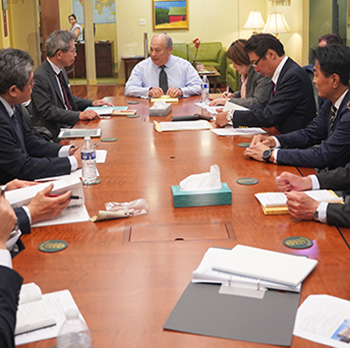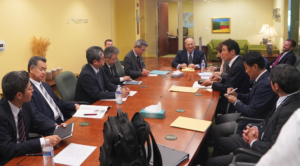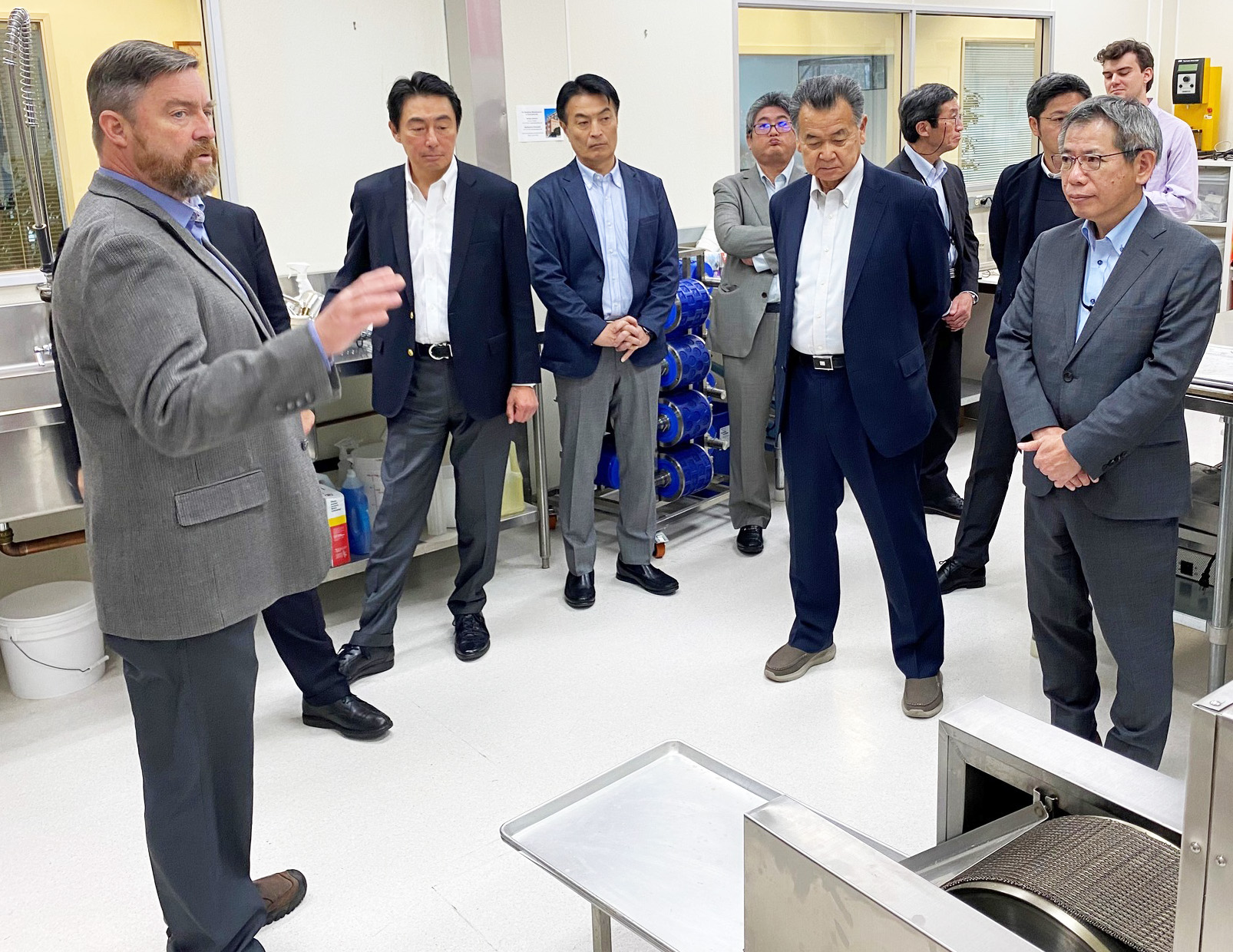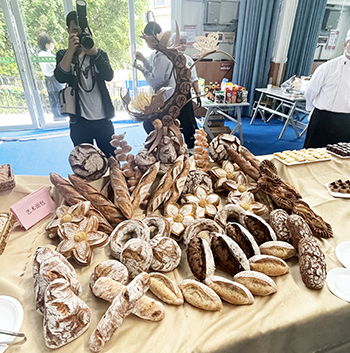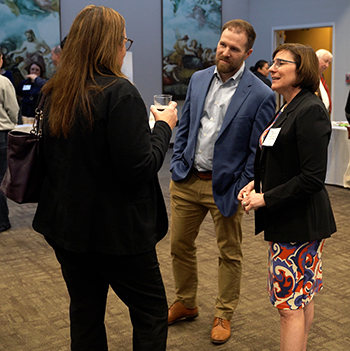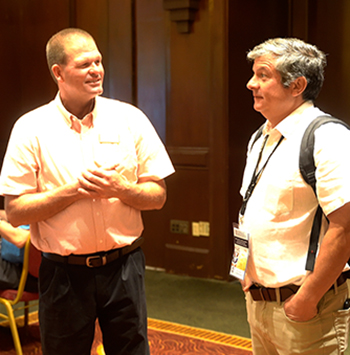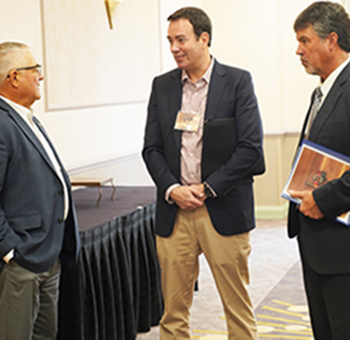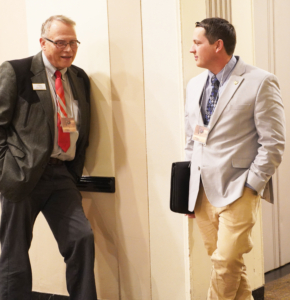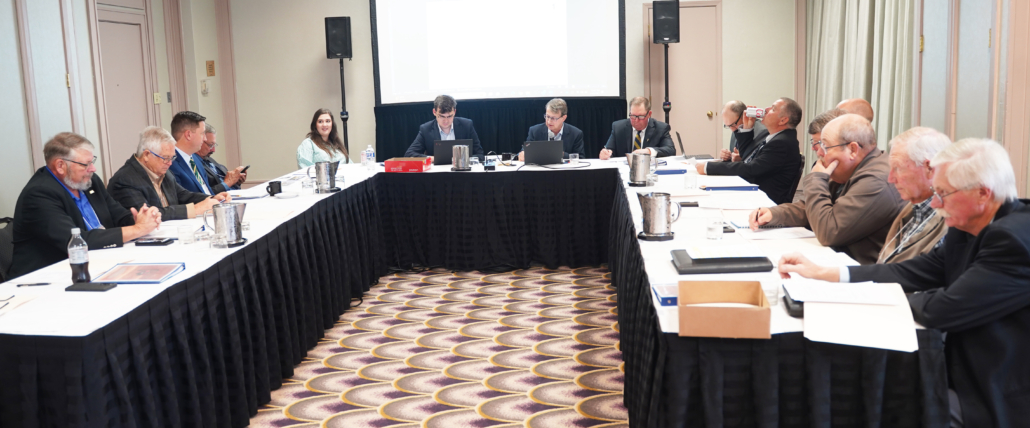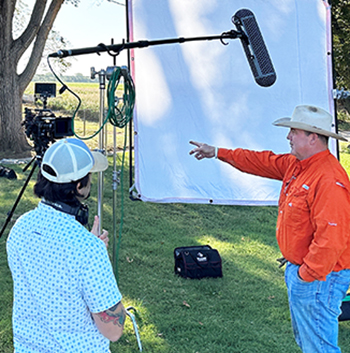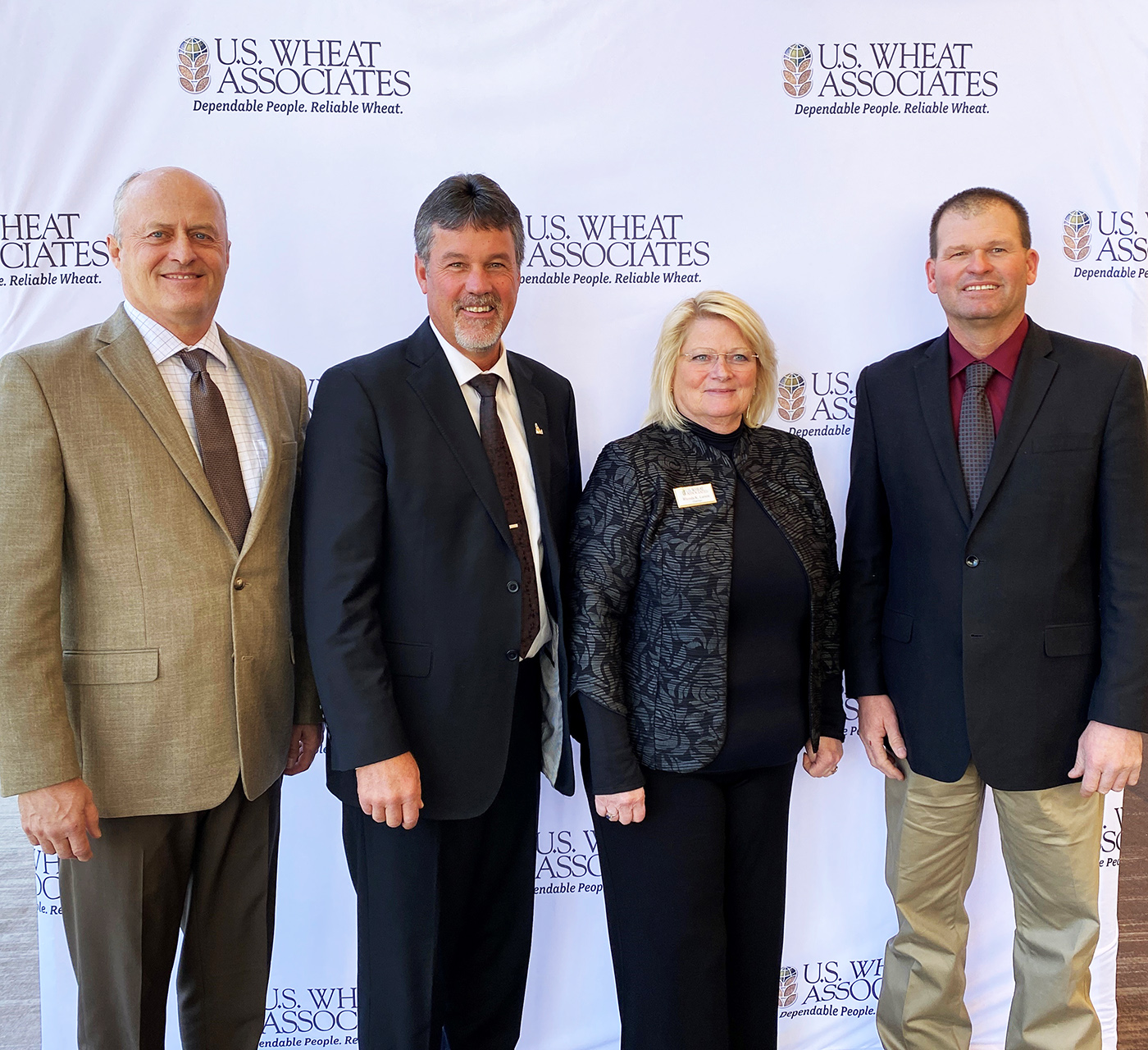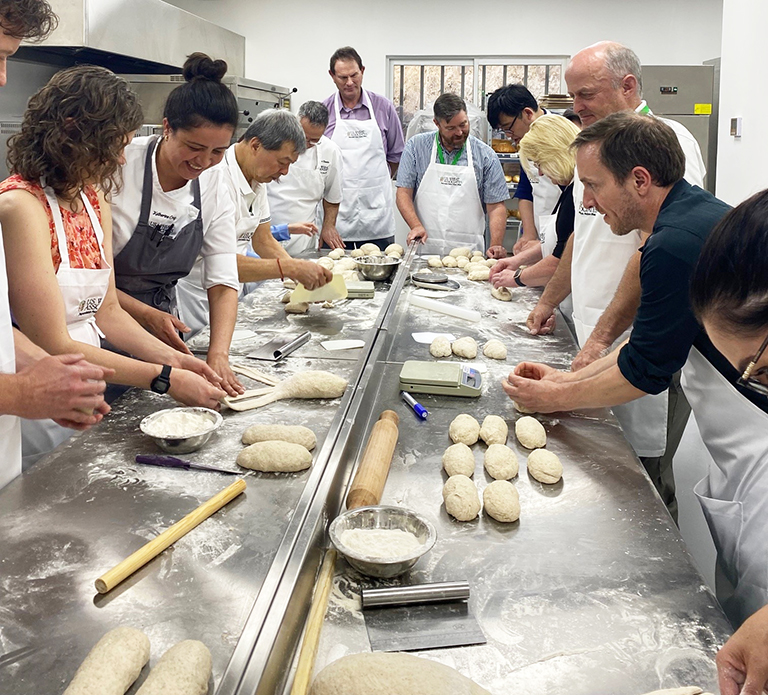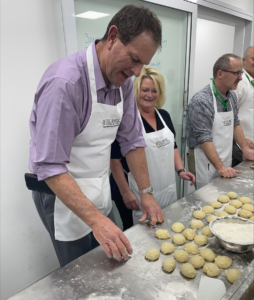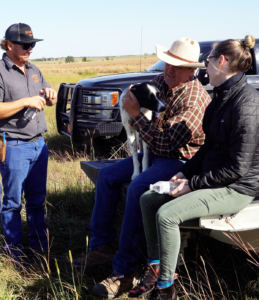
Tom Cannon, center, plays with one of his family’s dogs on their farm in Blackwell, Oklahoma, as he discusses the day’s plans with his son Jacob, left.
U.S. Wheat Associates (USW) recently spent a few days on Goodson Ranch, a Centennial farm in northern Oklahoma. It is in the town of Blackwell, just outside of Ponca City. The purpose was to meet with Tom Cannon, a fourth-generation farmer who grows hard red winter (HRW) wheat. Cannon spends a lot of time and effort to improve the sustainability of his operation. He is one of the U.S. wheat farmers that will be featured in USW’s upcoming “Stories of Stewardship” series, a project that will highlight the work farmers are doing to improve soil health and production. Here we offer a preview – a snapshot, if you will – from Cannon’s farm.
Flurry of activity
A professional video crew wasn’t enough to slow things down on Tom Cannon’s Oklahoma farm. Early morning was dedicated to working cattle, afternoon set aside for seeding winter wheat. But as is the case with most family farms, a flurry of unplanned activity and chores book-ended the day’s official plans.
“Welcome to farming,” Cannon offered with a chuckle as he inspected a flat tire on his no-till drill. It was the same drill his daughter Raegan was about to use to plant winter wheat.
A historic farm
Goodson Ranch was started by Cannon’s ancestors in the 1890s. Today, Cannon and his family raise cattle and grow a variety of crops, including HRW, corn, milo and cotton. His care for the soil and his attention to the role sustainability plays in the quality and reliability of U.S. wheat make him a solid choice for U.S. Wheat Associates’ (USW) ongoing “Stories of Stewardship” project.
In the project, Cannon and other U.S. wheat farmers tell the stories of their farms and how they work to make sure the land they pass on to the next generation of farmers is, as Cannon put is, “in better shape than when I started farming it.”
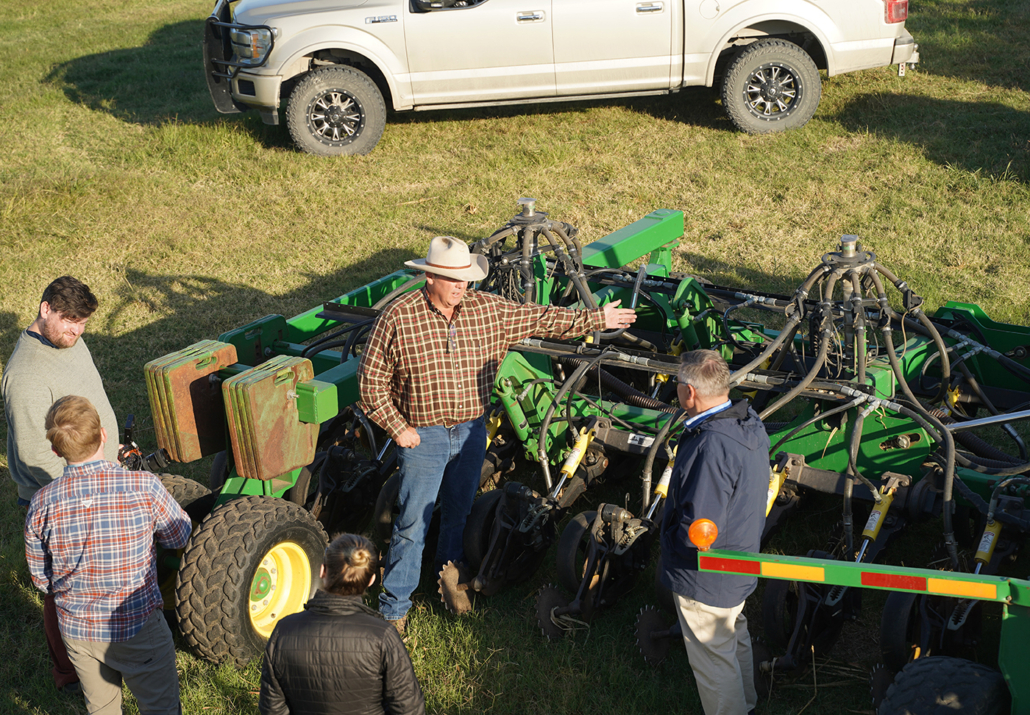
Tom Cannon explains the workings of his direct-seeding no-till drill to USW Vice President of Communications Steve Mercer and a film crew from USW’s creative agency on hand to interview Cannon about how he practices sustainability on the farm.
“We are standing on land where my family started farming all those years ago. Now, all of my kids are back on the farm. They are here with me and my wife Laurie. The hope is that someday they will be ready to continue what I, and those before me, have built,” Cannon said. He noted that the fifth generation of farmers – daughters Raegan, Rachel and Reece, along with son Jacob – are involved in the operation.
Producing quality wheat
Producing quality wheat is part of Cannon’s mission, as is meeting the needs of customers around the world who purchase U.S. wheat.
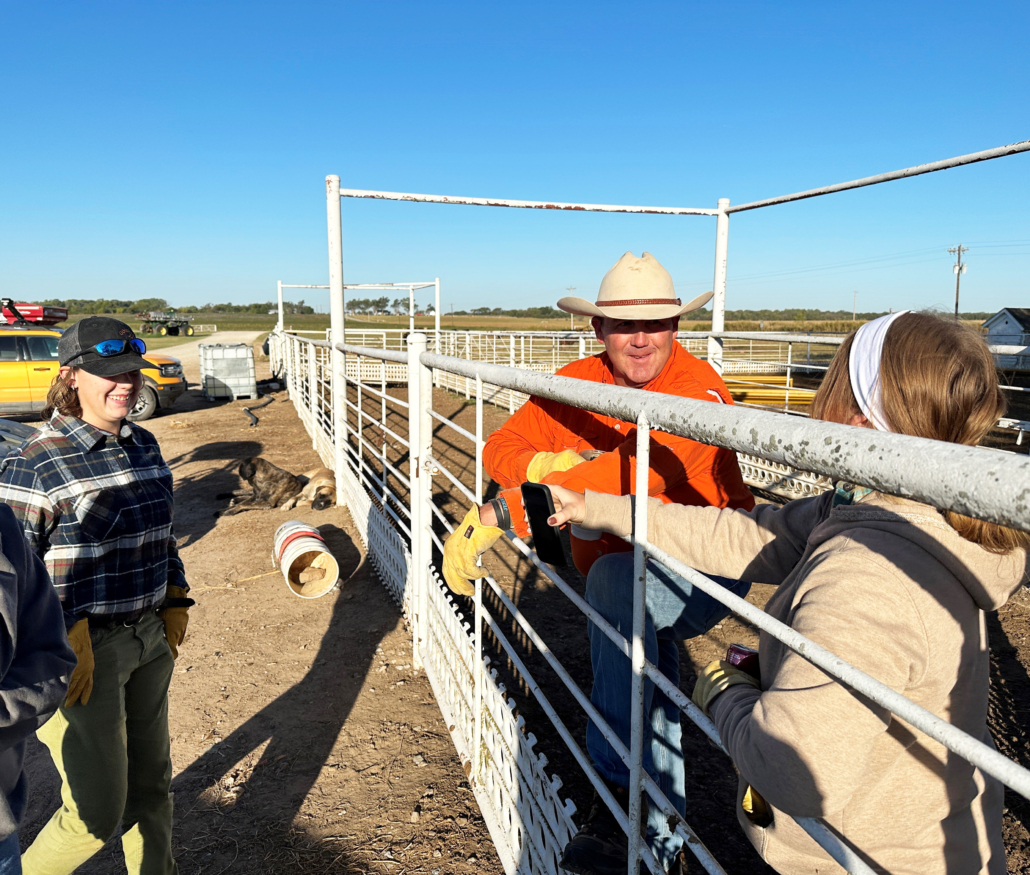
Tom Cannon prepares to work cattle with his daughters Raegen, right, and Rachel, left.
“My kids are going to eat the same things that I’m selling to other people,” he said. “So yes, I have a huge responsibility for what I grow for the general public. You know, a farmer feeds hundreds and hundreds of people. I am very cognizant of how I raise those crops.”
Cannon’s farm has produced crops for 25 years with zero tillage. He uses direct seeding. Soil health is the foundation of every decision his family makes.
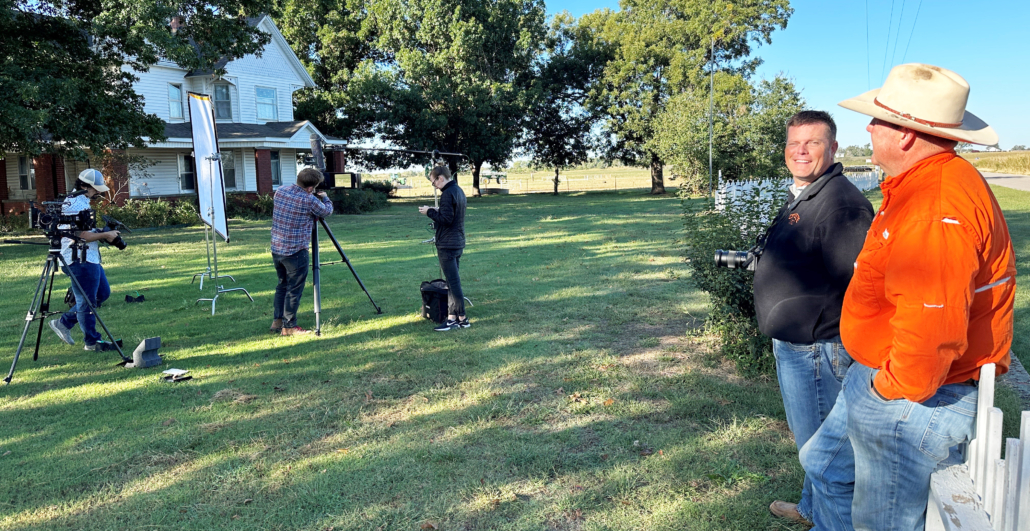
Tom Cannon chats with Oklahoma Wheat Commission Executive Director Mike Schulte as he waits for the video crew to interview him for USW’s Stories of Stewardship series
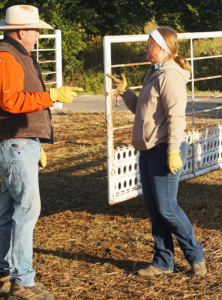
Tom cannon and his daughter Raegan trade ideas.
Native grasses key
The Goodson Ranch features a lot of native grasses, which make grazing cattle a natural part of the operation. But the grasses also inspired Cannon, a self-described fan of biology.
“Watching how our native grasses work enabled me to see that there was maybe a better way to grow our crops,” he said. “I asked myself, ‘How do I start building my soil and how am I going to manage wheat from the roots up?’ To do that, we had to get more diversity and we had to get cattle on this property at least once a year. You not only improve the soils. You also improve the quality of those products that you are raising in those soils.”
What is sustainability?
Asked what sustainability means to him, Cannon had a simple answer.
“I just have to shut my eyes and think about what this place was like for the thousands of years before we were here,” he replied. “What was it like then? Because it was absolutely sustainable.”


